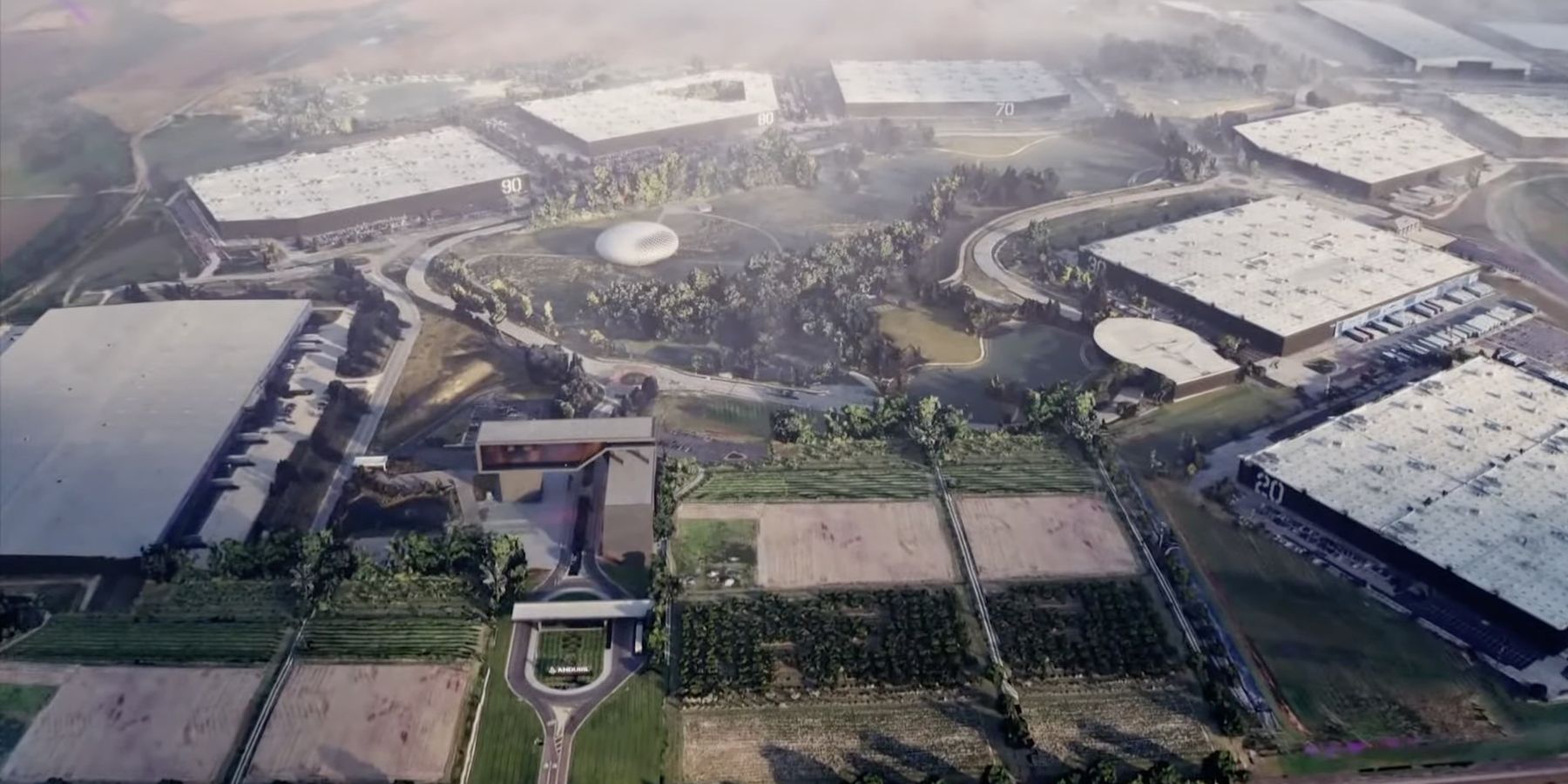A rising weapons tech industry star, Anduril Industries is now coming to Ohio — with the state’s help.
Last week, the Ohio Controlling Board approved a whopping $70 million from the Ohio Department of Development’s All Ohio Future Fund for a prospective weapons factory called Arsenal-1, a proposed five million-square-foot “hyperscale” production facility that Anduril wants to establish near Rickenbacker airport in Columbus, Ohio.
The funding was approved at the Controlling Board meeting with no objections and to little fanfare, outside State Rep. Tristian Rader’s (D-Lakewood) acknowledgement that “a lot of public money” was “going to a private development.”
Anduril and Ohio leadership depict Arsenal-1’s development as paramount for the economy and U.S. national security interests alike. But behind the rhetoric lies a greater battle over the future of controversial autonomous military technologies — and Americans’ role in producing them.
Ohio goes all in for Anduril
Arsenal-1 proponents tout the project’s economic benefits for Ohio residents. Promising 4,000 jobs, Arsenal-1 has been lauded as the largest job-creating project in Ohio's history. Going all in, the state is approving about $450 million in tax breaks for Anduril, which itself will invest about $1 billion into the project. And the plant, to start operations by mid-2026, will even be able to test and develop products at the nearby Rickenbacker airport.
"We welcome Anduril and celebrate the creation of thousands of new jobs in cutting-edge defense manufacturing,” Ohio Lt. Gov. Jon Husted said in January after Anduril announced intentions to come to Ohio. “This investment reinforces Ohio's position as a leader in advanced technology and national security.”
Going largely unscrutinized is what Anduril actually proposes to make at Arsenal-1. But its plans to mass produce ethically questionable autonomous and semi-autonomous weapons warrant scrutiny.
Broadly, concerns about autonomous weapons systems involve the outsourcing of lethal decisionmaking from humans to perhaps less discerning, and often inaccurate, machines. AI researchers also fear that the militarization of AI technology, by shifting the responsibility of fighting — and dying — from humans onto warfighting autonomous machines, may make countries less conflict averse.
These concerns have not stopped the proliferation of AI-backed weapons in places like Gaza, where Israeli forces have infamously utilized AI military targeting systems in their onslaught against the Palestinian people.
And now, proceeding further with autonomous weapons production, Arsenal-1 is part of a larger defense tech push by military contractors, especially a newer generation of defense tech startups, towards a revamped American defense industrial base able to mass produce orders of magnitude more weapons and military platforms —“hyperscaling,” as Anduril puts it— especially AI-backed ones.
Ramping up mass weapons production through new, U.S.-based facilities like Arsenal-1 and defense-minded, industrial automation startup Hadrian’s “highly automated precision component factories,” defense tech startups are tying key economic opportunities to militarism in the process. Along these lines, Hadrian explicitly described its work as an effort to “transform America's advanced manufacturing industrial base” in a 2022 fundraising announcement.
To proponents, the effort is crucial for U.S. national security amid increasingly tenuous geopolitical conditions. Along these lines, Anduril head Palmer Luckey has been railing against a military industrial complex favorite — the China threat — to sell Arsenal-1 and other weapons production efforts to the public.
“We don’t have time for business as usual…the fact that we are predicted to run out of munitions within the first eight days of a potential conflict in China means that we need to hyperscale manufacturing [with projects like Arsenal-1],” Luckey said in a late January interview about Arsenal-1, pointing to war with China as a distinct possibility.
Some fear these weapons companies’ militarist strides, when strewn together with promises of economic opportunity, can direct public opinion in the same direction. “[Palmer] Luckey’s Cold War convictions are becoming increasingly prevalent in the Midwest,” journalist Taylor Dorrell observed in Columbus-based Matter News. “The construction of the Intel plant in New Albany [Ohio], for example, has been cast as a new Cold War effort to beat China in a chip war.”
Debate over Arsenal-1 brews
But not all Ohioans are happy to see Anduril set up shop. Calling Arsenal-1 “a high stakes gamble in national defense,” the Scioto Valley Guardian’s Jay Salley highlighted local skepticism surrounding the “significant” public subsidies allocated to the project.
In fact, Veterans For Peace Chapter 183 and other Ohio-based advocacy groups will protest Arsenal-1 outside Ohio’s Rickenbacker Airport on Sunday. The groups take issue with the project’s substantive public funding, its possible environmental impact, and aforementioned ethical ramifications surrounding the ongoing militarization of AI perpetuated by companies like Anduril.
As Ohioans wrangle over Arsenal-1’s arrival, critical debate over the mass proliferation and future of autonomous weapons systems, and their prospects to make the future of warfare more dangerous, is sorely needed.
- Silicon Valley USA: Are these 'patriots' mere harbingers of doom? ›
- Do venture capitalists want forever war? ›
- What happens if the robot army is defeated? | Responsible Statecraft ›
- Army Secretary: Love the drone or be left behind | Responsible Statecraft ›
















